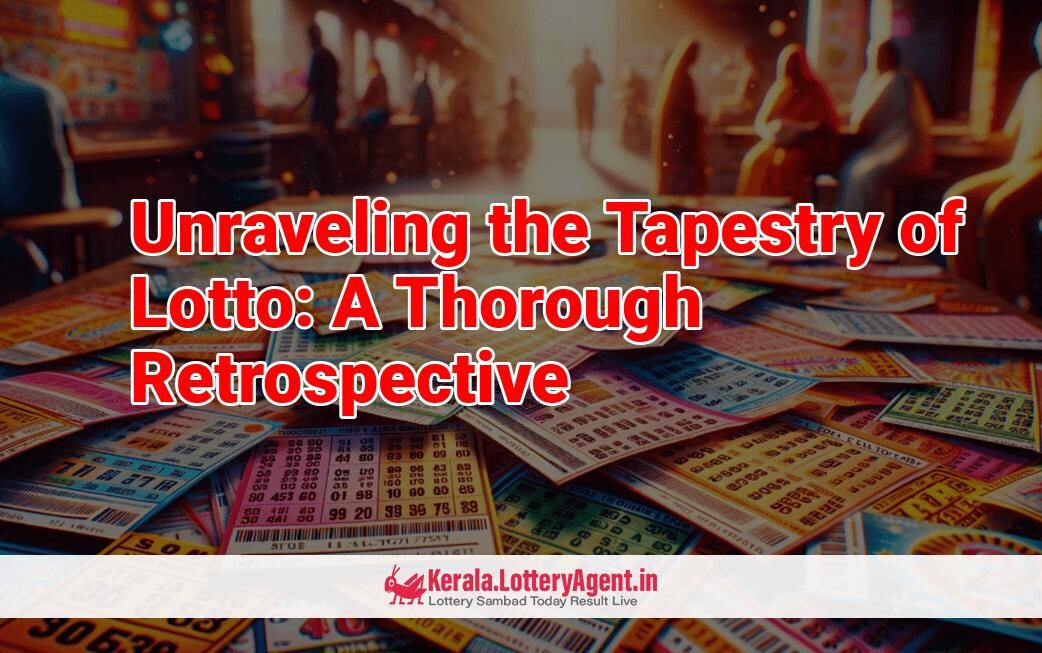
For enthusiasts enticed by the allure of the lottery, understanding its storied past is an intriguing endeavor. Curiosity often piques regarding the origins of this popular game of chance. The journey through the annals of lottery history unveils the evolution of what has become a global pastime, from the keno-like games of the ancient era to the sophisticated draw systems of the present.
The genesis of the lottery can be traced back over two millennia to China, during the Western Han Dynasty. Historians have identified the ancient “white pigeon game,” a precursor to modern keno, as the inaugural lottery. Remarkably, the results were dispatched on white pigeons to distant regions. Profits from such games are believed to have contributed to the construction of enduring symbols such as the Great Wall of China.
In Ancient Greece, a randomized method was adopted not for monetary gains but to uphold democracy, as leaders were selected through a lottery-like process. The use of a kleroterion, a specialized stone slab and tokens apparatus, constituted the essence of their civic engagement, while the privilege to partake in city council work was the prize.
Ancient Rome also reveals traces of lottery play, initially reserved for the high society during sumptuous feasts where winners were rewarded with generous gifts from the hosts. However, allegations of rigging in these setups were rife. Over time, the Roman citizenry was allowed to participate in lotteries, especially during Caesar Augustus’s era, with wartime spoils as the stakes, and the proceeds were funneled into Rome’s expansion and restoration.
Lotteries gained the moniker by which we recognize them today in the Middle Ages. As reported, the term “lot” emerged from the Dutch and Belgians in the 15th century, soon becoming a widespread phenomenon across Europe. Italian cities like Venice, Rome, and Florence quickly adopted this mode of fundraising to support public works. With varying rewards from money to merchandise, some dispositives even operated on individual schemes.
The concept reached the British Isles in the 16th century, with Queen Elizabeth I initiating the first national lottery in 1569. With the objective of public interest at heart, this elaborate affair featured pricey tickets and an assortment of prizes, including cash and luxury goods. The Queen herself took to drawing the winning balls among 10,000 distributed rewards.
The lottery fervor later spread to France, where in the 17th century, smaller towns banded together to host lotteries aiming to finance defensive infrastructure. Ensuring fairness, these draws often featured blindfolded children who picked the winning tickets. King Louis XVI recognized the potential of these games, monopolizing them into a national lottery that persisted even through the French Revolution, albeit the practice was halted in 1836 due to its exploitation of the working class, resurfacing only in the 1930s.
Portugal’s foray into lotteries in the 18th century saw the creation of the Loteria Clasica, with proceeds earmarked for prestigious establishments such as the Royal Academy of Sciences and the Royal Hospital in Lisbon. Meanwhile, Spain’s El Gordo, synonymous with a hefty main prize, began in 1812 as a means to cover the government’s war expenses. Today, it remains a treasured Christmas tradition.
The United States’ lottery history dates back to 1655, with latter-day iterations correlating with pivotal events such as the Revolutionary War. Today, the country hosts some of the world’s largest lottery draws, including the mammoth US Powerball and MegaMillions, with state lotteries supplementing the national offerings. Countries like Canada and Japan have their traditional games, while European entities have launched continental lotteries like EuroMillions and EuroJackpot, attracting players from multiple countries.
The proliferation of lotteries necessitates the acquisition of licenses from relevant authorities, with state-run or private companies often at the helm. The modern lottery industry accommodates both offline and online play, with the latter allowing participation from afar. Despite widespread acceptance, certain countries, influenced by religious or political ideologies, still outlaw lotteries.
Peering into the future, one can foresee the continued presence of lotteries, with the digital realm likely to expand its influence. At its core, the lottery remains a government-regulated endeavor, partly contributing to social causes. With countless options at the fingertips of would-be participants, the excitement encircling lotteries seems boundless.
Delving into records, the Dutch National Lottery (est. 1726) stands as one of the longest-running active lotteries, with Spain’s El Gordo a close second. The largest jackpots are nothing short of astronomical, with the record for the largest single win held by an anonymous player who secured $1.53 billion in 2018.
As a testament to human fascination with fortune, the lottery’s rich history serves as a backdrop to the thrilling chance of luck that continues to captivate millions globally. With the journey from humble origins to the sophisticated systems of today, the lottery is a game that resonates through time, offering every participant a dream of striking it rich with every ticket purchased.











